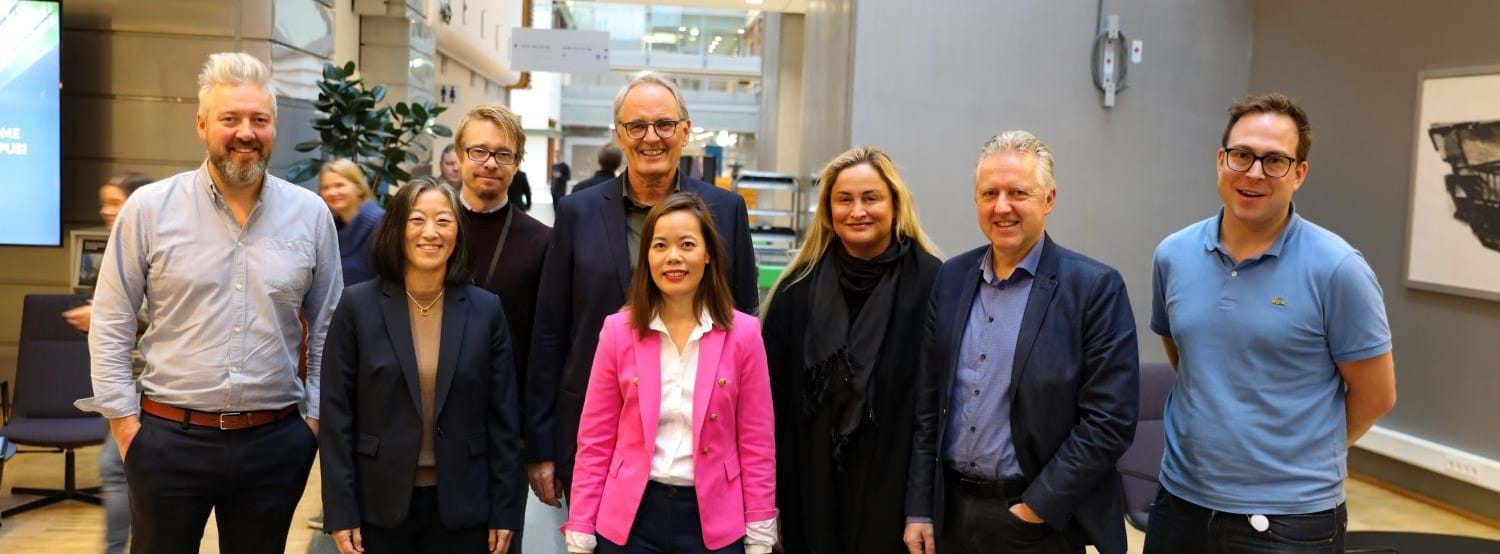BI Norwegian Business School: Unique programme for rapid growth

A new round of the Ocean Tech Scaling Program will start this autumn, where selected companies will have a unique opportunity to develop their growth strategy and networks to upgrade their businesses.
– The recruiting of this year's participants has started. There is room for eight companies, and we prepare thoroughly to check that the potential participants have the ambitions, and projects that fit, says Per Ingvar Olsen.
He is Professor at the Department of Strategy and Entrepreneurship at BI Norwegian Business School, which recently signed a partnership agreement with GCE Ocean Technology (see facts), and is academically responsible for the program.
Several business areas
The Ocean Tech Scaling Program has been developed by GCE Ocean Technology together with BI, MIT and VIS. The program was derived from another large national collaborative project between the GCE clusters, MIT and BI.
The program has been completed four times, with participants from many business areas; seafood, subsea, oil and gas, offshore and companies that focus on digitization and cloud-based service solutions.
– This is a productive collaboration between academia and industry. Here, the participants get to work with experts and colleagues from other companies who want to create robust strategies and speed up the company's business, says Olsen.
Help from the entrepreneurial guru
The Ocean Tech Scaling Program contains five modules. Four in Norway, while the fifth takes place at the Martin Trust Center for Entrepreneurship at MIT. The week-long stay in Boston is often the icing on the cake for the participants, with entrepreneurial guru Bill Aulet as the key figure.
– He is a capacity and a great communicator that has been through many innovation processes. In addition, there is the informal atmosphere at MIT, an international, interdisciplinary "garage environment" with great commitment and the opportunity to make invaluable contacts.
The art of opting out
Eight companies are offered to participate in the program, bringing two or three representatives; ideally one from technology, management and market.
– There is often a "hole" in the transition from the early phase, to a professional company that can scale up. It usually starts with a technological idea, and then the management, the finances and sales must be in place. This coordination is a demanding process, says Olsen.
– There is a lot to learn here. Particularly, the art of opting out and concentrating on the most important factors to become effective entrepreneurs.
Making the right decisions
Along the way, the growth strategy of each individual company will be "stress-tested", also by experts in Boston and international investors and entrepreneurs. Is the solution good enough, and what must be done to escalate?
– We live in a time where it is easy to get lost. A few years ago, "everyone" was supposed to take part in the green wave, but we see how “the tide” turns. Today, it is challenging to make the right choices, as oil and gas are more profitable than ever. The Ocean Tech Scaling Program can help set the right course.
Happy participants
The organizing staff has received a lot of great feedback from companies that have participated in the previous four years.
Olsen mentions Scantrol Deep Vision as a good example. The company, which has developed an underwater system to identify and measure fish underwater, was among last year's participants. They were helped to work strategically with growth and scaling and how they could implement the methods in their company.
But BI also has a lot to gain from being involved in the program and other activities under the auspices of GCE Ocean Technology.
– Our job is to educate students. To succeed in this, we must have as much knowledge as possible about the challenges within business and industry. The academy must be involved where it happens, and here the GCE Ocean Technology cluster is extremely important. We must build networks and work together so that we can contribute to entrepreneurship and innovation, ends Per Ingvar Olsen.
Contact Information


FACTS
BI Norwegian Business School is one of 18 partners from industry, R&D, academia and public bodies, which has recently signed a new 5-year agreement with GCE Ocean Technology.
The partners in the cluster are the leading force, and the backbone of the cluster's strategic work.
The partners get access to various arenas and projects where they meet potential customers, suppliers and partners.
Here, valuable knowledge is developed and shared between the cluster's +150 partners, members and collaborators.
